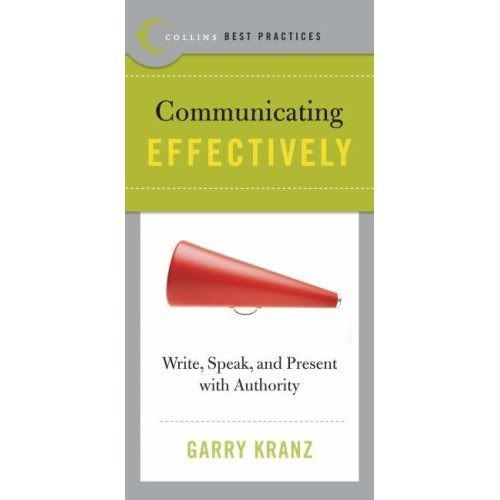Importance Of Effective Communication
By Barbara Stennes
No matter how brilliant and invaluable your idea, it is worthless unless you can share it with others. For this reason, effective communication is crucial at every level of an organization. However, the ability to communicate effectively does not come easily to many people, and it is a skill that requires practice.We begin practicing our communication skills even before we learn to walk. A newborn child communicates by crying, but it slowly learns to mimic its parents' speech. Eventually, the child discovers that certain speech patterns elicit different responses; one of the joys of parenting is trying to decipher the meaning behind certain “words.” Does “baaaaaw” mean that the baby wants his ball, his bottle, or his blanket? Slowly, through trial and error, the child learns to manipulate sounds to get what it wants, and as the child develops, this active oral practice leads to more nuanced and fluid conversations. In short, the child learns effective communication.To effectively communicate a complex idea, however, requires skills beyond elementary conversation.
There are two golden rules to remember and follow.
Golden Rule #1: Organize thoughts in your mind before sharing them with others.One idea often prompts a torrent of others. In order to share your ideas, you must first shape them coherently. Organization is important, because it creates a pattern for your listener, allowing him or her to grasp the larger picture intuitively. This allows the listener to focus on the details of your message, without struggling to understand how you went from Point A to Point B.As a thought experiment, imagine that a colleague has asked you for directions to the airport. Write them down. Your directions will probably look something like:
Drive west half a mile on Aurora.
Take a left on Madison.
At the third light, turn right and follow Dexter for 2-3 miles.
Get on the interstate, heading south.
Etc.
Now, with a pair of scissors, cut each line of instructions into a small strip of paper. Jumble the strips up and arrange them in a completely random order, then give them to your colleague. Even with mixed-up directions, s/he should have no trouble reaching the airport, right? After all, your directions are complete and accurate. Not a single step is missing.The problem, of course, is that your directions are also completely unorganized, rendering them useless. Your colleague will find it impossible to focus on your message itself, because he or she will struggle to follow your message's structure (or lack thereof).
Golden Rule #2: Communication is Collaborative, Not CompetitiveThrusting your idea on others mars the beauty and integrity of conversation. Communication is in some ways like a dance; each partner plays off the other, basing his or her steps on the other person's, while simultaneously maintaining a certain amount of individuality.Communication is a two-way process involving an exchange of ideas. If you try to make it one-way, you prevent this exchange and will eventually frustrate the other person. You may also frustrate yourself, if you read the other person's lack of verbosity as disinterest in the conversation, rather than an inability to get a word in.The hallmark of effective communication is the coherent verbal projection of your ideas, so that your listener receives the message that you intend to send. By observing these two rules, you will reduce miscommunication and misunderstandings.

